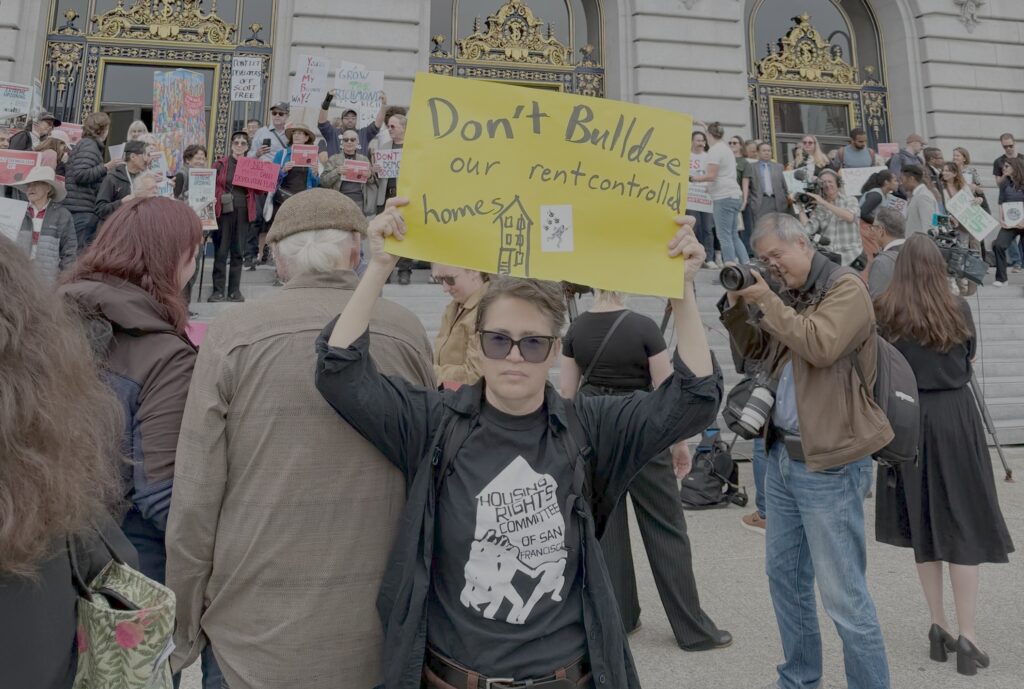The hearing Monday on the mayor’s Rich Family Zoning Plan was kind of surreal. Beyond all the rhetoric, two perspectives emerged: Some people argued that the private market in our late-stage Capitalism will still work to solve our problems. Some people argued that it won’t.
The rest was just political window dressing.

As one speaker noted, the Yimby argument that more supply will fix the price problem “is rooted in the economics of the 1950s. This is not the 1950s.”
No, it’s not.
Michelle from the Chinese Progressive Organization made the points: “The plan does not plan for adequate affordable housing and a plan to finance it. It will increase displacement as economic inequality increases. We know what put us here: Scott Wiener and the Yimby agenda and the real estate money.”
The deep issue behind all of this is simple; The city is going to change, and always has changed, and that’s fine. But the people and small businesses who are already here should have the right to remain.
(I could also argue that the historic properties that will never, ever be replaced, because developers of new housing care nothing about architecture except for maximizing floor space, minimizing costs, and generating the most possible profit, also deserve some protections. As one speaker noted, the tourists who create $9 billion in economic activity every year don’t come here to look at bleak brutalist towers.)
But set the buildings and the local economy aside: the idea that the only way to increase housing affordability is to let the private market demolish existing buildings to put up more dense luxury housing is just a farce.
Under the state’s zoning mandates, of course, putting up a 25 unit building counts as 25 new units—even if 10 existing units are destroyed in the process.
The hearing was just the first step; supes have offered a series of amendments, including some that might slow down the destruction of existing communities, and the committee continued the item for two weeks.
But the breakdown of the three members is interesting: Sup. Bilal Mahmood made clear he will oppose any amendments that don’t fit the Yimby Agenda. Sup. Cheyanne Chen made clear that she wants to protect exiting vulnerable communities. And we don’t know where the chair, Sup. Myrna Melgar, will come down.
Over the next two weeks, the supes will wrangle over the details of the amendments—and will, I suspect, ask Gov. Gavin Newsom’s pro-Yimby housing people what level of protection for existing rent-controlled housing and small businesses is acceptable.
The final vote at the board will be sometime in December, and by then, I presume, the mayor will have appointed a new D4 supe. For the moment, that seat is vacant.



